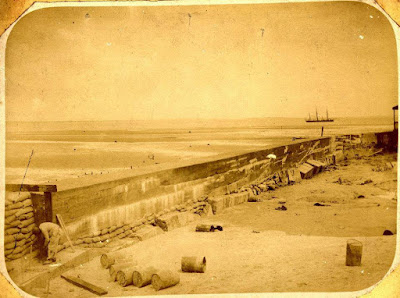(Excerpt from the book ‘The Greek presence in the Horn of Africa’)
Harrar was considered a holy city for the Muslims. Consequently, non-Muslims were not allowed to enter it. The first foreigner who managed to get in the city was Manolis Chlampoulakis, a sailor that worked on a ship that reached the port of Zeila in Somalia. The Greek sailor knew Turkish and convinced the city's emir that he was a Muslim. Chlampoulakis settled in the city, married one of the daughters of the local emir, and dealt with the cultivation of coffee and fruit. In the late 1880s, he co-operated with ‘Abe Stein’, an American company based in Aden, He managed to dominate the trade in the wider Harrar region. Later, he cooperated with Markos Dalentzas and was also involved in leather trade.










